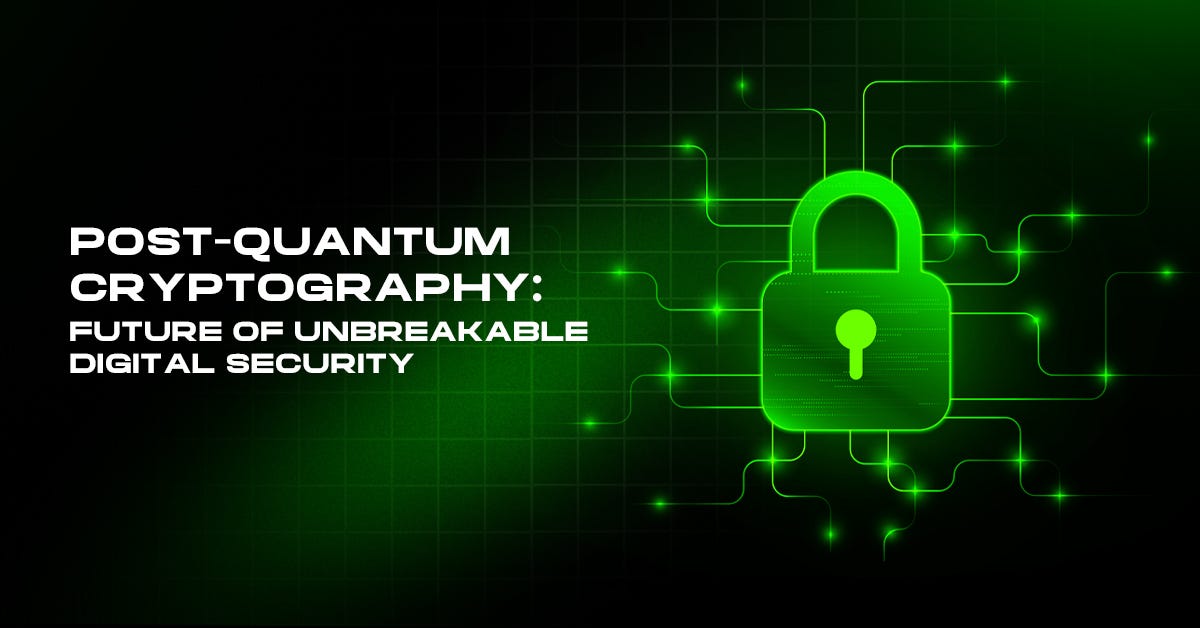
October 27, 2025
Post-Quantum Cryptography: Developing Encryption Methods for Future-Proof Cybersecurity
Post-Quantum Cryptography: Developing Encryption Methods for Future-Proof Cybersecurity
What if the encryption technology we use today become useless overnight? Imagine quantum computers cracking RSA and ECC in seconds. That sounds scary, right? That may be our future. Hope remains! Quantum attacks might not be able to break next-generation encryption methods like Post-Quantum Cryptography (PQC). This blog will explain PQC, why it's important, and how you may prepare for a quantum-secure world.
What is Post-Quantum Cryptography?
How is Post-Quantum Cryptography defined? Breaking down: Consider that modern encryption is like lock-and-key. These locks function well, but quantum computers might break them instantly. Here comes PQC. Quantum computing-resistant encryption techniques.
When completely developed, quantum computers will run algorithms that defeat encryption. PQC creates stronger locks quantum computers can't pick. Cryptographic methods that are safe even with quantum computers are the objective. NIST is standardising these algorithms for real-world use.
Why Post-Quantum Cryptography is Needed
Why is PQC so important? Quantum computers are coming and will transform everything. Modern encryption like RSA might be cracked in an instant if they do. Personal and commercial data will be at risk. We must prepare now by implementing quantum-resistant encryption methods. Now that quantum computers are coming, they'll threaten our data security.
How Post-Quantum Cryptography Works
What makes Post-Quantum Cryptography work? To understand this, you must know why quantum computers may defeat standard cryptography. Classical computers struggle to factor huge numbers, whereas quantum techniques like Shor's algorithm can. RSA and ECC are susceptible because of it.
PQC employs mathematical challenges quantum computers face, including as lattice-based encryption, hash-based signatures, code-based cryptography, and multivariate-quadratic-equations encryption. Quantum computers struggle to break these strategies.
A simple Python code sample for hash-based encryption, a PQC approach, will clarify. This basic code generates a hash (digital signature) to validate data integrity:
import hashlib
# Create a simple hash-based signature example (for educational purposes)
def generate_hash(data):
return hashlib.sha256(data.encode()).hexdigest()
def verify_hash(data, hash_value):
return generate_hash(data) == hash_value
# Example usage
data = "Quantum Secure Message"
signature = generate_hash(data)
print("Signature Valid:", verify_hash(data, signature)) # Should return TrueThis code shows how hash functions check the security of data, which is an important part of post-quantum encryption methods.
Current State of Post-Quantum Cryptography
The good news is that PQC is already under development! NIST has been developing quantum-resistant encryption standards for years. They selected promising algorithms Kyber, FrodoKEM, NTRU, and Rainbow. These algorithms are far from widespread use. Biggest challenge? Balancing security, efficiency, and implementation. Businesses and developers could consider PQC solutions while NIST refines these algorithms.
Challenges in Implementing Post-Quantum Cryptography
PQC promises a safe future, but it is hard to put into action. First, it's hard and takes a lot of time to switch from regular encryption to post-quantum encryption. Since most systems still use old methods, switching to PQC might need a lot of work.
Quantum-resistant algorithms must be fast enough for real-world applications without compromising security. Backward support is important so that PQC can still use existing security methods while the shift is happening. There are risks involved and benefits that are greater than the challenges.
How Post-Quantum Cryptography Will Shape the Future
Future cybersecurity relies on PQC. PQC will back up secure communication in data-sensitive industries including banking, healthcare, and government. As quantum computers get better, it will be very important to keep private info safe.
Tech titans like Apple and Google aren't the only ones moving, though. Developers, cybersecurity specialists, and companies must adopt quantum-resistant algorithms now to stay ahead. Future-proofing our digital infrastructure protects our data for future generations.
Conclusion
Post-Quantum Cryptography is essential for digital security, not only a theoretical answer. Our encryption approaches must develop with quantum computers. Let's embrace PQC and prepare today to protect our data in a quantum-powered future. Ready for system futureproofing?
847 views
